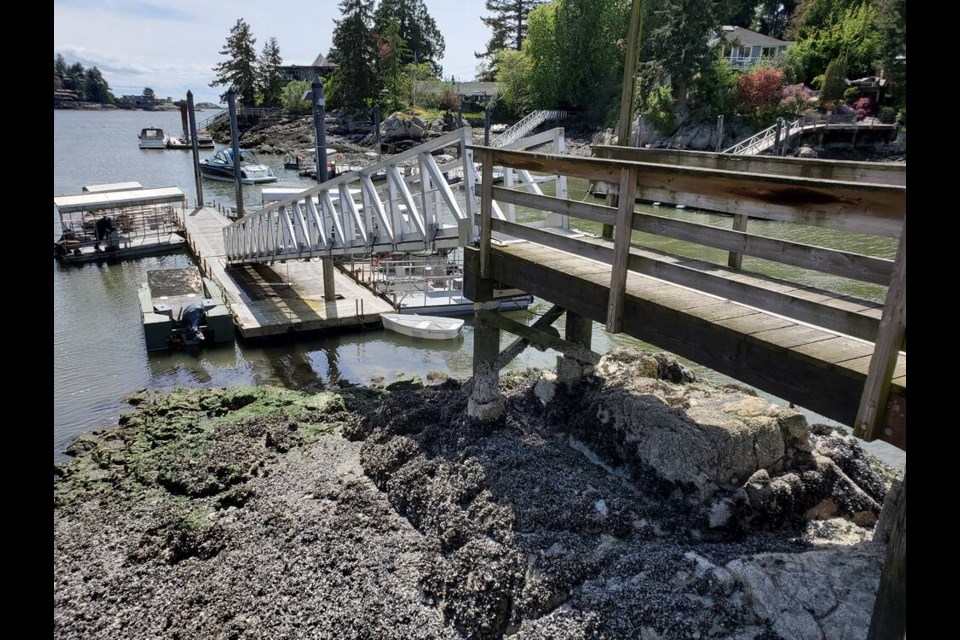The long arm of government regulation is coming to West Vancouver’s idyllic Eagle Island.
The District of West Vancouver will be stepping in to regulate public dock access for the island, after residents complained not all of their neighbours have been abiding by the friendly understanding island dwellers have relied on to get back and forth to their properties.
“It’s causing a lot of friction on the island,” Alex Beyer, president of the Eagle Island Residents Association, told council members May 29. “There are people who are not speaking anymore because of this issue.”
There are only 33 properties on Eagle Island, a water-access-only community just a stone’s throw from West Vancouver’s Eagle Harbour.
There are no roads or vehicles on Eagle Island.
Historically, residents have gone back and forth to their properties in rowboats or small covered “barges” which they moor at floats attached to public docks on both the island and the “West Van” sides.
For many years, residents have understood the unwritten rule, resident Pat Hindley told council: one household gets one barge.
“Perhaps it was naïve to think no formal rules were required,” said island resident Betty Lebel.
But then the unthinkable happened: “A resident purchased a second barge,” she said.
That has quickly become a problem amid the extremely limited number of spots for islanders to dock.
“Eagle Island would become a completely dysfunctional community if everyone required a second barge,” said Lebel.
According to district staff, nine of the Eagle Island residents access their homes from the West Vancouver Yacht Club, while the other 24 households moor at the Eagle Harbour public dock.
The municipality owns and maintains the public docks on both the island and “mainland,” intended to provide space for small barges and rowboats.
“Everyone has gone across with their groceries in a rowboat in the rain,” said Beyer. “It’s the best thing and the worst thing about living on Eagle Island.”
But space is tight. “There’s clearly not the capacity to have extra barges there,” said Beyer.
More recently, staff said there have been increasing complaints that the one-house-one-boat “social contract” is being breached.
Not only is the offending second barge hogging more than its fair share of dock space, the barge itself is also bigger than everyone else’s, residents told council members.
“No one knew anything. It just arrived like an alien spaceship,” said island resident John Owen.
Owen and Hindley both described trying to dock when there has been no space available on the floats – sometimes in the dark and rain with the tide coming in.
“I had to climb over the engine and get on the next barge to get on to the land,” said Owen.
“Ninety-nine per cent of us get along well,” said Owen. “Unfortunately, that’s changed.”
The family at the centre of the barge dispute declined to discuss the situation with the News.
Council voted to ask district staff to come back by fall at the latest with a bylaw for regulating public dock use, including enforcement provisions for those who don’t obey the rules.
West Vancouver Mayor Mark Sager added he’s very familiar with the situation, having lived on Eagle Island between 1979 and 1983. Sager said at the time he had a barge that was “just a little too small,” which proved inadequate one December night when he decided to host a black-tie dinner party. “The barge didn’t do very well getting the people off the island and we ended up swimming,” he said.



